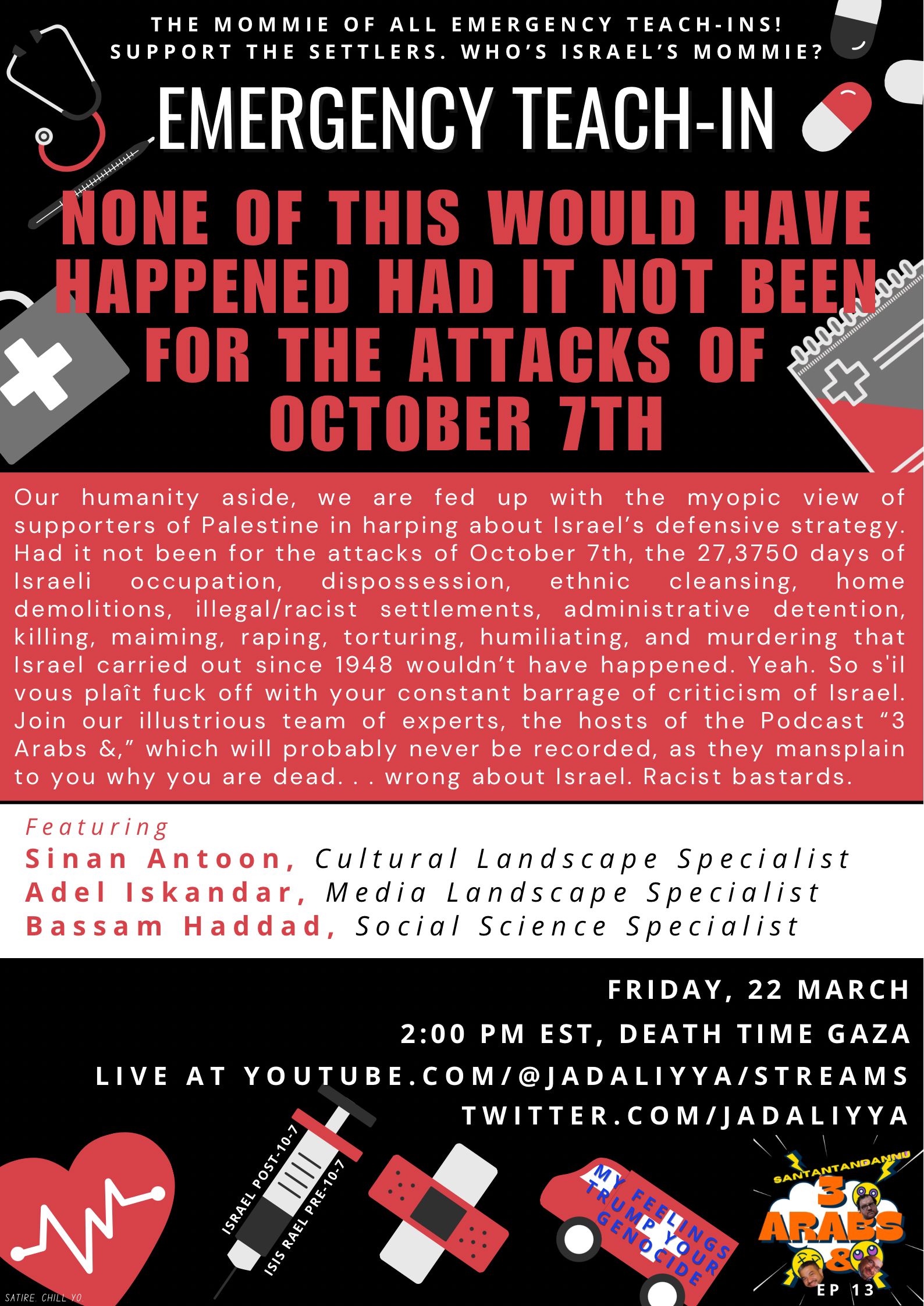Bassam Haddad is Founding Director of the Middle East and Islamic Studies Program and Associate Professor at the Schar School of Policy and Government at George Mason University. He is the author of Business Networks in Syria: The Political Economy of Authoritarian Resilience (Stanford University Press, 2011) and co-editor of A Critical Political Economy of the Middle East (Stanford University Press, 2021). Bassam is Co-Founder/Editor of Jadaliyya Ezine and Executive Director of the Arab Studies Institute. He serves as Founding Editor of the Arab Studies Journal and the Knowledge Production Project. He is co-producer/director of the award-winning documentary film, About Baghdad, and director of the acclaimed series Arabs and Terrorism. Bassam is Executive Producer of Status Podcast Channel and Director of the Middle East Studies Pedagogy Initiative (MESPI). He received MESA's Jere L. Bacharach Service Award in 2017 for his service to the profession. Currently, Bassam is working on his second Syria book titled Understanding The Syrian Tragedy: Regime, Opposition, Outsiders (forthcoming, Stanford University Press).
Emergency Teach-In 13:
None of this would have happened had it not been for the attacks of October 7th
Featuring
Sinan Antoon, Cultural Landscape Specialist
Adel Iskandar, Media Landscape Specialist
Bassam Haddad, Social Science Specialist
The mommie of all emergency teach-ins!
Support the settlers, who's israel's mommie?
Our humanity aside, we are fed up with the myopic view of supporters of Palestine in harping about Israel’s defensive strategy. Had it not been for the attacks of October 7th, the 27,3750 days of Israeli occupation, dispossession, ethnic cleansing, home demolitions, illegal/racist settlements, administrative detention, killing, maiming, raping, torturing, humiliating, and murdering that Israel carried out since 1948 wouldn’t have happened. Yeah. So s'il vous plaît fuck off with your constant barrage of criticism of Israel. Join our illustrious team of experts, the hosts of the Podcast “3 Arabs &,” which will probably never be recorded, as they mansplain to you why you are dead. . . wrong about Israel. Racist bastards.
My feelings trump your genocide

Featuring
Sinan Antoon is a poet, novelist, scholar and translator. He has published five novels and two collections of poetry. A third collection of poetry in English, entitled Postcards from the Underworld, was published by Seagull Books this past October. He has been described as one of the most acclaimed Arab novelists. His most recent work in Arabic is a novel entitled, Khuzama
His literary translations from Arabic include Saadi Youssef’s Nostalgia; My Enemy and Mahmoud Darwish’s In the Presence of Absence which won the National Translation Award given by the American Literary Translators Association. His scholarly works include the book, Ibn al-Hajjaj and Sukhf: The Poetics of the Obscene in Pre-Modern Arabic Poetry. He is associate professor at New York University. He is co-founder and co-editor of Jadaliyya.
Adel Iskandar is an Associate Professor of Global Communication at Simon Fraser University, where he is the Director of the Centre for Comparative Muslim Studies and the Chair of Graduate Studies in the School of Communication. He is the author, co-author and co-editor of numerous works including Edward Said: A Legacy of Emancipation and Representation(University of California Press, 2010). Iskandar is a Co-Editor of Jadaliyya.